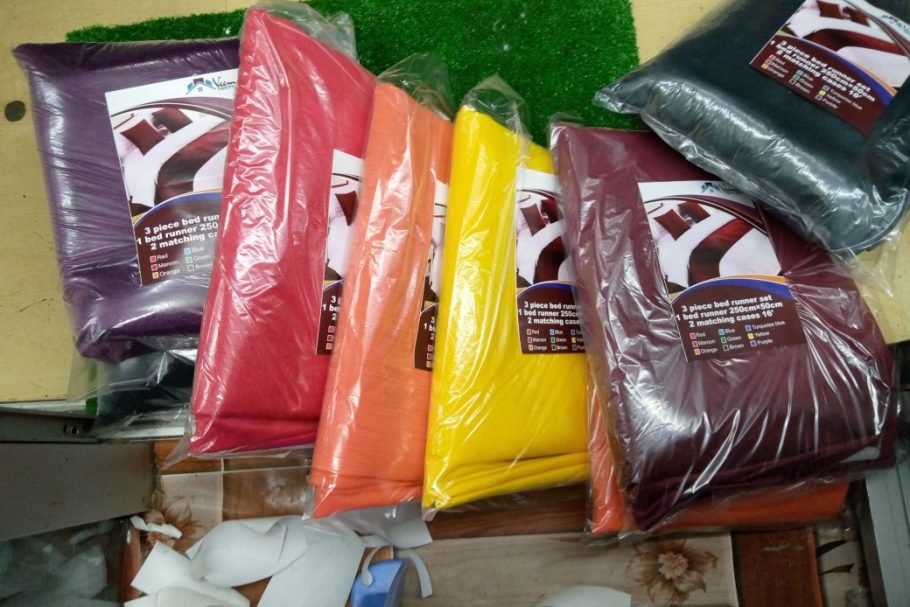About the Campaign
GROWING SOCIAL ENTREPRENEURSHIP BUSINESS IN NAIROBI
In Kenya inequality among its citizens is evident in more aspects, like wealth distribution, poverty level, and human rights. Specifically, one-tenth of Kenyans have a grasp on approximately two-fifths of total wealth, implying that the overwhelming majority of Kenyans only shares less than 60 percent of the total wealth.
Gender inequality is significant as well, and Kenyan women continue to advocate for their equal rights to property, security, financial services, healthcare, and education.
Our new Kenyan partner, Veema Household is owned by a woman, Virginia Njeri, who has the drive to make a change, and through her business, help more people in her community find the way out of poverty.
We support Veema Household to scale up and offer job opportunities to locals in need.
STORY ABOUT VIRGINIA, THE FOUNDER OF VEEMA HOUSEHOLD
As a young girl in Kenya, Virginia Njeri, Veema Household founder, did not get a white-collar job. So she started a selling business for her livelihood and to fight poverty.
She started Veema without a single product of her own. In the beginning, Virginia was selling other people’s products.
Soon she realized that, if she wanted to grow her business, she needed to find other sources of income, and new opportunities. She noted that there is a high demand for bed runners in Kenya, especially in hotels, guest houses, and residential houses, and there was not one product supplier in Kenya. She began producing bed runners on a small scale. However, if she wanted to grow her business, Virginia needed new financial resources.
“Having struggled for long to secure a livelihood, knocking on the doors of opportunity with almost zero success, I purposed to be the change and opportunity I myself desperately needed for someone else in need. Thus my motivation for social entrepreneurship.”
Virginia Njeri, Founder and CEO of Veema Household
Being very inventive and persistent in her will to succeed, she started selling her knowledge, found ways to limit the operating costs, used every situation to present her products.
The efforts paid off. She has even employed a deliveryman, Brian.
Understanding that she has the capabilities to grow her business and thus can provide more people with employment or a source of income, Virginia presented her business case to our Kenyan RISE centre. As we recognized her idea and genuine drive to support more people in the community on their sustaining way out of poverty, Virginia became our partner.
TALKS ABOUT BEING A WOMAN ENTREPRENEUR IN KENYA

Is there an issue related to the empowerment of women that is particularly important to you?
Virginia: Long are gone the days women sat and waited for men to fend for them. There has been a high increase in suicide cases and other terrible things in society as men feel the heavy pressure to provide for their families. We, therefore, need women empowered to help alleviate the heavy burden that men sometimes have to bear despite hard economic times. Also, it’s important for a woman to be empowered as they have so much they can bring to the table and make the world a better place.
What challenges do you face as a social entrepreneur?
Virginia: The greatest challenge has been the resources to start and run the business. Then, it´s stiff competition and keeping afloat during hard economic tides.
What motivates you?
Virginia: Hope for a better tomorrow in the first place. Achieving life stability Eradicating poverty. Desire to raise the living standards of people around me.
USER-DRIVEN PROGRAMME, ACCOUNTABILITY MANAGEMENT, AND SUSTAINABLE ECONOMY
All Action10 programmes are user-driven. It means that the partners and local social entrepreneurs ideate, initiate, and manage the programme.
Accountability management is one of our ActionAreas. We offer this service to our loan takers and partners. Read more about how we work regarding accountability management and sustainable economy on Human Rights & Science website.
